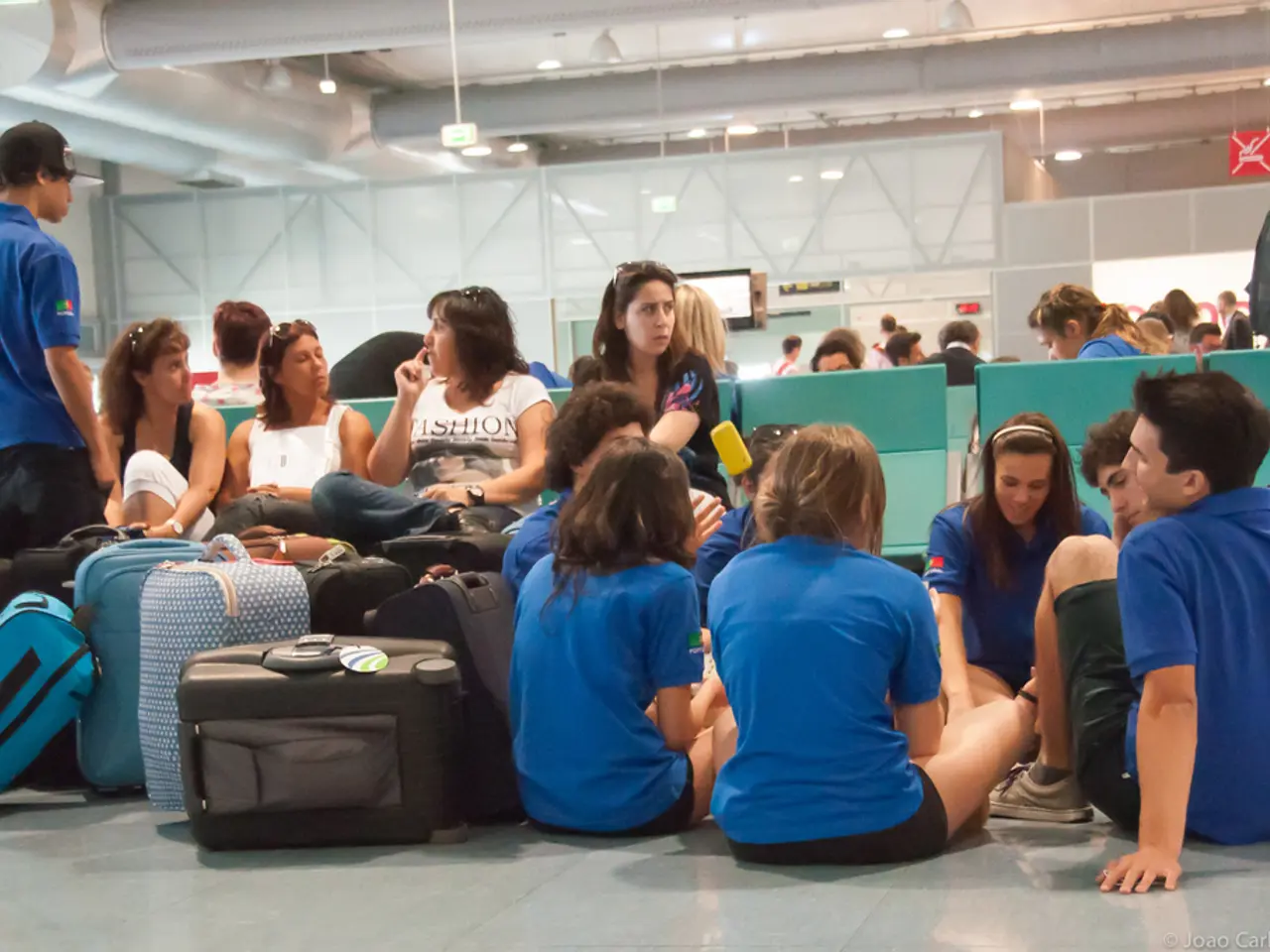Berlin's largest refugee facility set to shut down before the end of the year
Berlin's largest refugee shelter, located on the grounds of the former Tegel Airport, is set to close by the end of 2023. The current facility, often known as the "arrival centre," has been a makeshift city of lightweight halls, accommodating up to 5,500 people at its peak.
The city plans to replace the halls with a 2,600-bed container facility, designed for short stays of 72 to 96 hours. This new facility will primarily serve for registration and quick relocation of refugees, rather than long-term accommodation.
The decision to close the "arrival centre" reflects a shift in Berlin’s refugee accommodation strategy. The city is moving away from large-scale extended stays at Tegel towards shorter-term, more transitional housing solutions. This change comes as a response to the decreasing number of arrivals.
The current number of residents at the "arrival centre" is approximately 2,000. Despite criticism from some, including SPD deputy Joerg Stroedter, who view the running of the "arrival centre" as a waste of public funds, DRK site manager Kleopatra Tuemmler defends the facility. She cites the provision of hot meals, medical care, and social services as evidence of its value.
The future of the "arrival centre" depends on future refugee inflows, as stated by LAF president Peer Junge. The closure of the facility signifies a significant change in Berlin's refugee accommodation policies.
The container facility is expected to be operational by December, marking a transition in how new arrivals are processed and housed in the city. After closing the halls at Tegel, Berlin will continue to support refugee intake through this more compact, short-term facility.
Initially designed as a temporary refugee accommodation, the "arrival centre" transformed into a semi-permanent home due to delays in plans for smaller, decentralized shelters. The Berlin Court of Auditors is currently investigating the cost of running the "arrival centre," which, it is reported, costs the city more than €1 million per day to run.
State-owned Messe Berlin managed the "arrival centre" and billed for security services with a 15% markup, which was later reduced to 9%. This change is part of a broader shift in Berlin's refugee accommodation policies, aiming to provide more efficient and cost-effective solutions for accommodating new arrivals.
- The shift in Berlin's refugee accommodation strategy, as seen in the planned replacement of the "arrival center" with a container facility, is likely to influence broader discussions in war-and-conflicts, politics, general-news, and crime-and-justice, given the ongoing migration trends and city management strategies.
- Berlin's approach to refugee accommodation, with the closure of the "arrival center" and the introduction of a more compact, short-term container facility, could set a precedent for other cities dealing with migration issues, as short-term, transitional housing solutions might become a focus in war-and-conflicts, politics, and general-news.







